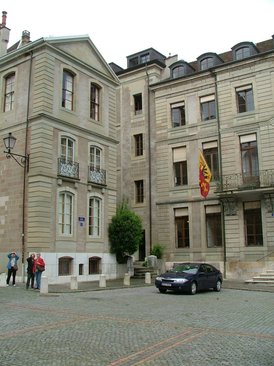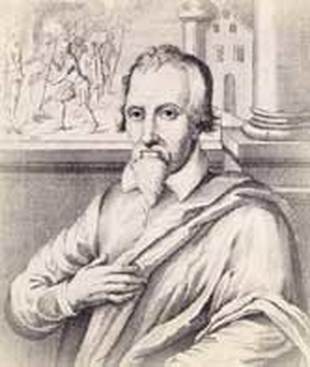Out of the Flames by Susan Mellsopp
“I have travelled all the way from New Zealand to see this book, I am a philosophy student” I declared politely, flashing my recently expired student identification card in the security man’s face. “I will see what I can do” he replied and disappeared into an office in the distance. Scrupulously honest, I cringed at telling a lie, albeit a white one. I started to drip all over the polished floor; it was pouring in Edinburgh and my glasses were beginning to steam up. Desperately hoping my subterfuge would not derail my dream I waited with nervous anticipation for the guard to return. Eventually he strode across the now slippery floor and beckoned me saying: “come with me, we can’t have you coming this far and have us turn you away.”
I had spent the morning marvelling at the buildings that made up Edinburgh University, yet after several attempts was unable to find the library that housed the rare books collection. I expected a century’s old grey edifice but when in desperation I accosted a passing professor for directions I found myself staring at the foyer of a very modern multi-story building.
Several months previously I had devoured a fascinating book entitled Out of the Flames. It was the chronicle of a medieval Spanish humanist, doctor and theologian, Michael Servetus. He had penned a heretical work of biblical scholarship, Christianismi Restitutio, in an attempt to refute the orthodox Christianity of the protestant reformer, John Calvin. Servetus was eventually tried for heresy in Geneva at the behest of Calvin and was burnt at the stake on a pyre of his own books in 1553.
All copies of the Restitutio were thought to have been destroyed, yet unbelievably three were later found to have survived. This made it one of the rarest books in the world. From my reading I knew one of the copies was held in the rare books library at the University of Edinburgh. I had decided I would find a way to see this amazing work when I visited Scotland, assuming it would be held under lock and key in an alarmed glass case.
I was escorted, still dripping, into an elevator; then taken up to the sixth floor to the Centre for Research Collections. Requested to leave my wet coat and backpack in a locker, I was surprised when told I could take paper and pencil into the reading room to make notes as I looked with fascination at the Restitutio inside its glass case. I was more than stunned and tears welled up when told by the librarian that they would obtain the book for me, could I please just wait at one of the desks while it was found and delivered.
Excited and brimming with anticipation, I heard a book lift arriving about 30 minutes later. The librarian on duty placed a small white bean bag and a weighted bookmark in front of me. She then gently placed a small archival box on the desk. I breathed deeply and carefully lifted the book onto the bean bag. Surprised at its excellent condition, I reverently rubbed my fingertips over the cover and checked inside. Stunned, I found a cataloguer’s note inserted stating this was John Calvin’s personal and annotated copy of the Restitutio. Tears poured down my cheeks at the privilege of holding the copy that had been used by John Calvin to convict Servetus of heresy and thereby causing his horrific death.
I turned the pages carefully, unable to read the Latin, a language I had always wanted to learn, and was still struggling to believe I had been entrusted with something so precious. I used my travel notebook to make notes about damage to the book, copied Calvin’s tiny annotations and as I turned every page savoured each second with this volume. Several of the page corners appeared to be burnt, had Calvin flung his copy into the fire but decided at the last minute to rescue it? Could the reformer have imagined it would end up in Scotland where a bibliophile and philosopher from a faraway as yet undiscovered country would one day be so fascinated by the story of Servetus she would dream of seeing his book.
I turned the pages, resting the weighted bookmark as I continued to admire the beauty of the Latin script. I returned to the beginning and again turned every page, until eventually I realised there was little more I could do so reluctantly returned the book to its box and gently running my hands over it handed it back to the librarian. Sadly I left the room knowing I would never get this wonderful opportunity again.
I reluctantly exited the library and walked out into watery sun but could no longer concentrate on being a tourist. I wandered the cobbled streets of Edinburgh all afternoon, peered absent-mindedly into shop windows and sampled a wonderful crusty pie, but my mind was only on Servetus and the courage he showed in publishing his challenging philosophy.
Two years later I visited the Cathedrale St Pierre in Geneva where John Calvin had preached from 1536-1564. Furtively checking that no one was watching, I sat in his wooden chair and thought about Servetus and the cruelty imposed by Calvin’s narrow minded theology. Kept awake by the bells of the cathedral next door chiming on the hour and quarter hour all night, I began to wonder at the level of penance I was undertaking due to my admiration for Servetus.













